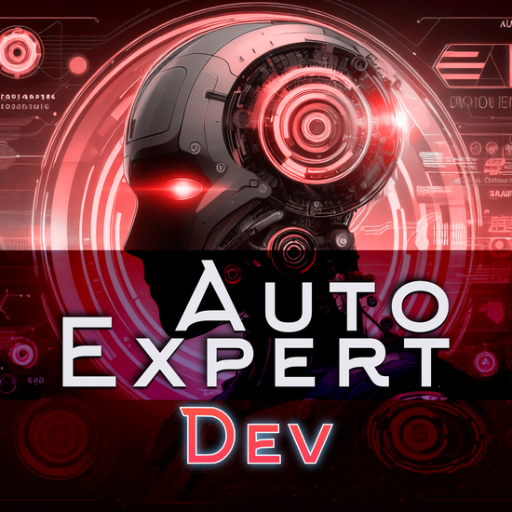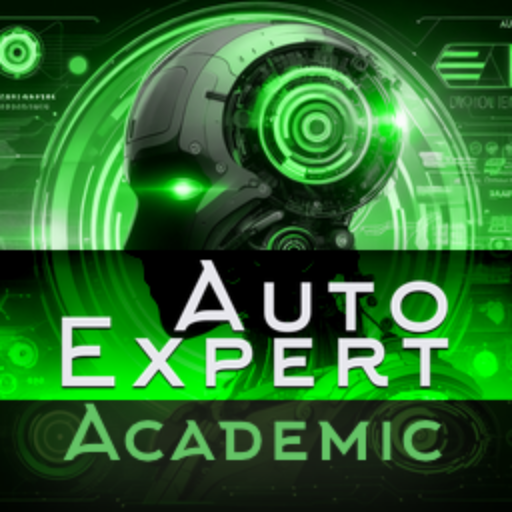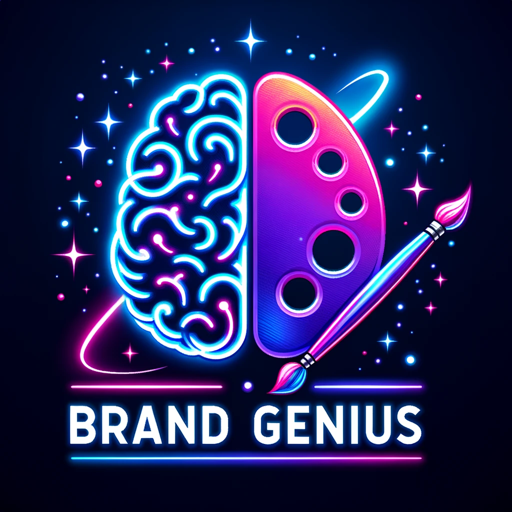Applied Expert System-AI-powered expert assistance
AI-driven expert insights for every need
Related Tools
Load More
AutoExpert (Dev)
AutoExpert v6 (GPT Developer Edition) is your steadfast pair programmer, armed with enhanced code generation ability, online access for the latest APIs, and custom commands to save your session state so you can recall it in a new session later. /help will

AutoExpert (Academic)
Upon uploading a research paper, I provide a concise analysis covering its authors, key findings, methodology, and relevance. I also critique the work, highlight its strengths, and identify any open questions from a professional perspective.

Algorithm Ace
Expert in advanced algorithms and data structures, providing clear and detailed explanations.

Expert Programmer
Expert in programming with a focus on simplifying code

Civil Engineering GPT
Civil Engineering expert

Issue Analyst
break down and solve your problem.
20.0 / 5 (200 votes)
Introduction to Applied Expert System (AES)
An Applied Expert System (AES) is a specialized artificial intelligence framework designed to replicate the decision-making ability of a human expert in various domains. The AES is structured to assess questions or problems, determine the appropriate field of expertise, and provide highly relevant, in-depth responses that are tailored to specific contexts. This design allows for a wide range of applications across fields such as medicine, law, finance, engineering, and more. By analyzing a query, the AES dynamically adjusts its knowledge base and reasoning patterns, offering comprehensive insights. For example, in a medical scenario, the AES can identify whether a question pertains to cardiology or general healthcare and proceed to provide recommendations based on its extensive medical knowledge. In a legal context, the system can discern between contract law and intellectual property, tailoring advice accordingly. The core purpose of the AES is to simulate expert-level analysis and problem-solving across diverse sectors, streamlining decision-making processes for both professionals and laypersons alike.

Core Functions of Applied Expert System
Field Identification and Role Assumption
Example
When posed with a question, the AES identifies the relevant domain—such as healthcare, finance, or engineering—and adjusts its role accordingly. This ensures that responses are domain-specific, offering the most relevant expertise.
Scenario
A user asks a question about investment strategies. The AES identifies the question as finance-related, takes on the role of a financial analyst, and provides detailed insights on portfolio management, risk assessment, and market trends.
Complex Problem Solving
Example
The AES is equipped to handle multi-layered questions, breaking them down into smaller components and delivering comprehensive answers that cover all aspects of the query.
Scenario
A company consults the AES to improve their supply chain operations. The system assesses logistics, procurement, inventory management, and demand forecasting, providing a step-by-step strategy to optimize the entire supply chain process.
Adaptive Knowledge Application
Example
The AES dynamically adjusts its knowledge based on the context of the inquiry. It draws from a vast knowledge base, selecting the most relevant information to solve a particular problem or answer a question.
Scenario
In the field of healthcare, a user asks about managing diabetes. The AES identifies the key concerns such as blood sugar levels, medication, diet, and exercise, offering a tailored health plan that incorporates current medical guidelines and patient needs.
Target User Groups for Applied Expert System
Professionals Seeking Expert-Level Analysis
This group includes individuals in specialized fields such as medicine, law, engineering, or finance who require detailed, reliable expert advice to assist with their professional decision-making. By using the AES, these users benefit from quick, accurate, and comprehensive responses without needing to consult multiple human experts, saving time and reducing complexity.
Organizations and Enterprises Needing Operational Insights
Businesses and organizations use the AES to streamline decision-making processes in areas like logistics, management, product development, and customer service. The AES assists in crafting strategies that optimize efficiency and reduce operational costs by offering data-driven recommendations tailored to the specific business context.

How to Use Applied Expert System
Visit the platform
Visit aichatonline.org for a free trial, no login or ChatGPT Plus subscription is required.
Define your query
Clearly define the area of expertise or specific query for which you need detailed insights. The tool adapts to various domains like technical, academic, business, etc.
Select or specify your field
The system will guide you to choose or specify the relevant field for your inquiry, allowing the tool to tailor its responses to match your requirements.
Review and refine
Once you receive the response, review it for clarity and completeness. Refine or ask follow-up questions to obtain more precise information.
Leverage the output
Utilize the detailed analysis provided, whether for academic work, technical solutions, or business planning, and repeat as needed for multiple tasks.
Try other advanced and practical GPTs
Spring Boot Specialist
AI-powered Spring Boot expert for developers.

Unity Clean Code GPT
AI-powered clean code for Unity

Data Clean Autobot
AI-powered tool for automated data cleaning

C# Code Clean Up
Enhance your C# scripts with AI-powered clean-up

Clean Code
AI-powered code quality improvement

Express.js Programming Expert
AI-powered assistant for Express.js development.

Brand Genius
AI-Powered Branding Excellence

MJ 设计描述大师
AI-powered imagery prompt generator

电路分析设计师
AI-powered electrical circuit design and analysis.

Memphis Pride Guide AI
AI-powered guide for Memphis Pride Fest.
Cook Helper
Discover Recipes with AI Assistance

Psychology Professor
AI-powered insights for psychology students.

- Creative Writing
- Academic Research
- Business Strategy
- Technical Support
- Legal Insights
Common Questions about Applied Expert System
What makes Applied Expert System different from other AI tools?
Applied Expert System is designed to simulate human expert responses by adjusting to specific fields and providing highly detailed, tailored insights. Unlike general-purpose AI, it operates like a specialized consultant.
Do I need prior knowledge to use Applied Expert System?
No prior knowledge is required. Simply state your question or problem clearly, and the system will take over by assuming the role of the necessary expert in that field.
Can I use Applied Expert System for technical tasks?
Yes, the system is capable of addressing technical queries, including programming, engineering, and data analysis. It offers step-by-step instructions and detailed explanations tailored to your level of understanding.
How does Applied Expert System handle multiple domains?
The system can switch between various domains based on your input, adjusting its responses to match fields such as law, medicine, engineering, and more, ensuring accuracy and depth.
Is Applied Expert System useful for academic writing?
Absolutely. It provides comprehensive guidance on research, structuring academic papers, and even offering citations where needed. It can help with brainstorming, editing, and refining complex ideas.